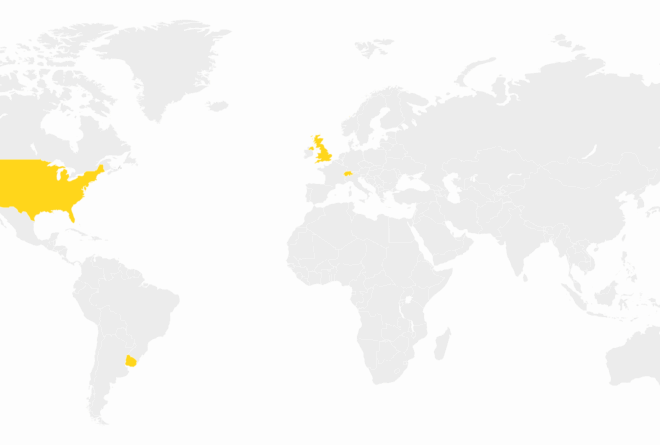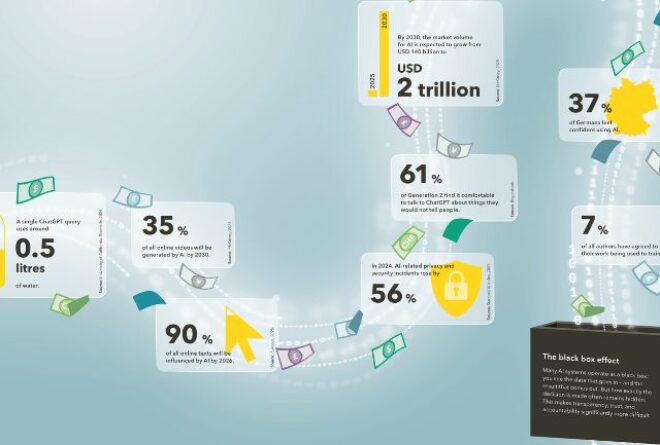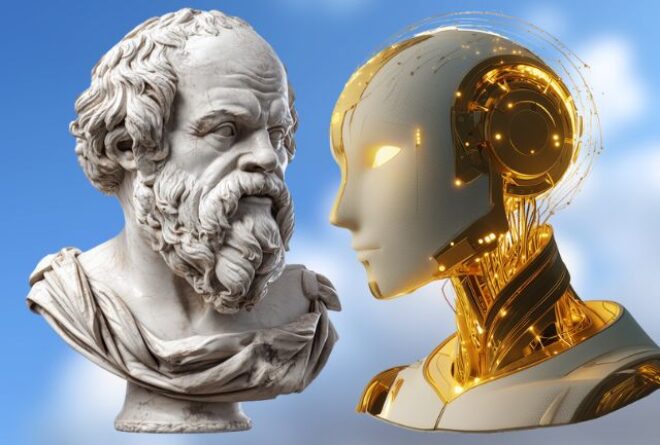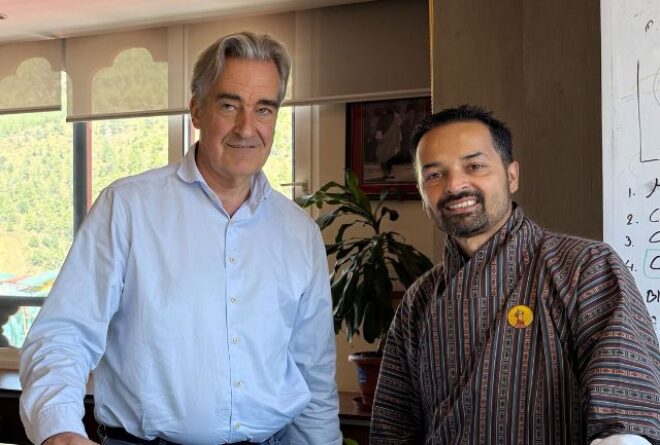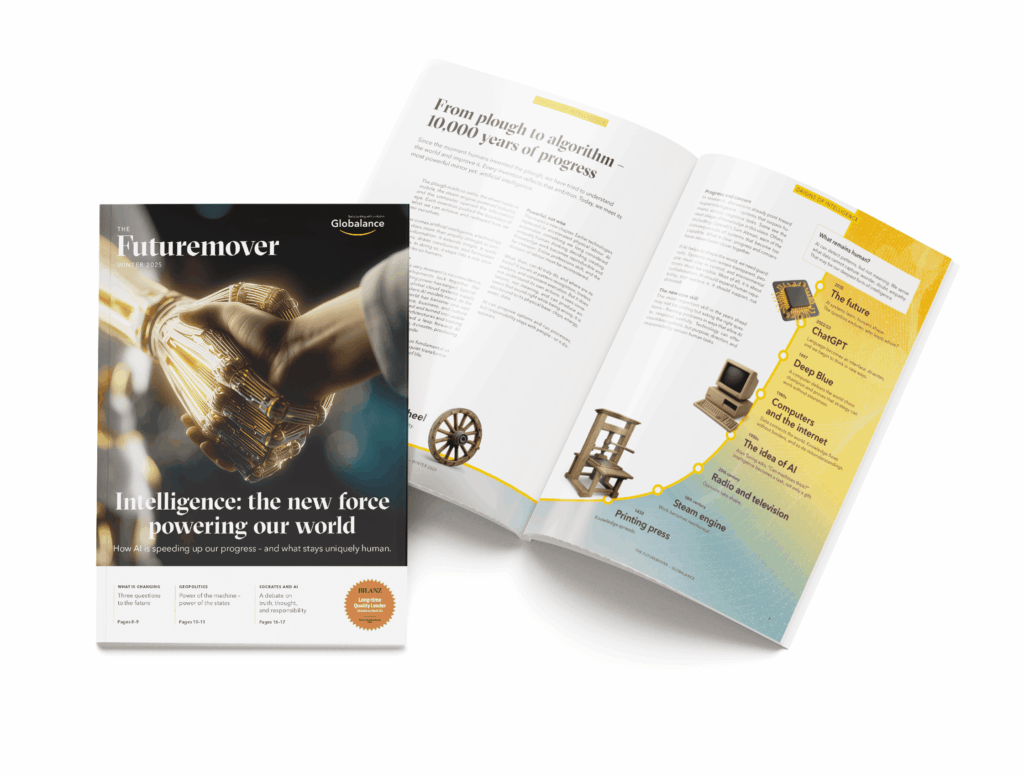News & Trends
A tutor which never gets tired

A new tutor has entered the classroom: artificial intelligence. It is enabling personalized learning – but what does this mean for schools, teachers, and learners?
Imagine a school where every student has a tutor – always available, personalized to the individual, never stressed. What sounds like science fiction is closer to reality than many think. Companies like Khan Academy or Microsoft Education are developing AI-supported learning systems which impart knowledge in a tailor-made manner and adjust to the individual’s learning speed.
“Before, teaching materials had to work the same for everyone. Today we can tailor knowledge to every child”, says Pierre Dillenbourg, Professor for learning technologies at the Swiss Federal Technology Institute of Lausanne (EPFL). AI tutors analyse what students already understand and where they are having difficulties. They adjust tasks, suggest alternative explanations and give immediate feedback. “Particularly in maths or languages, this can yield significant benefits.”
AI not only facilitates traditional learning, but also helps in areas which until now have been hard to measure. One example is Dynamilis, an AI-supported system for analysing handwriting which Dillenbourg co-developed. It detects the subtlest of movement patterns, which elude the human eye, and helps identify motor difficulties early on and address them in a targeted way. But learning is more than just knowledge retrieval. Can AI also nurture critical thinking and creativity?

Teachers as learning coaches
AI is changing the role of teachers – but not making them redundant. “Good teachers aren’t imparters of knowledge; rather, they are learning coaches”, says Dillenbourg. They ask the crucial questions, encourage students to think, and motivate them.
A well-known educational study shows: learning progress is strongly dependent on teacher expectations. Children who are trusted to be capable and given demanding tasks achieve measurably better results. “Chatbots can give the correct answers – but they don’t believe in you”, concludes Dillenbourg.
AI can lighten teachers’ load, however, for example by automatically correcting work or providing personalized exercises. That means there is more time for the actual job: preparing children not only for exams, but also for life.
Self-regulated learning is underestimated
But not all learners automatically benefit from AI. A key factor is the ability to achieve self-regulated learning – in other words, a person’s ability to set goals for themselves, monitor their learning progress, and correct themselves.
“A person who doesn’t know how to learn in a meaningful way or how to organize themselves won’t succeed even with AI”, says Dillenbourg. AI can make suggestions, but it cannot replace personal initiative. Here, the role of teachers remains paramount: they need to support learners in developing independent learning so that they can work with digital tools.
Technology as an opportunity – but for whom?
AI-supported education can help above all in areas where teachers are in short supply – for example in remote regions or developing countries. But Dillenbourg knows: “Educational equity doesn’t just happen.” Currently, anyone who does not have access to good schools will often also lack access to digital learning.
While companies like Open AI or Google Education are investing billions in the development of AI tutors, it is still unclear how schools will be able to integrate this technology in a meaningful way – and finance it. Because AI is not for free: it not only needs enormous computing power and energy, but also technological infrastructure and trained teachers.
Chatbots can give the correct answers – but they don’t believe in you.
Pierre Dillenbourg – Professor of learning technologies, EPF Lausanne
Between algorithm and empathy
The school of the future will not be shaped by algorithms alone. AI can optimize learning processes and support teachers – but it will not replace people.
Learning is more than getting the correct answer. It is about trying things out, making mistakes, asking questions, and making new discoveries. Because ultimately, human beings do not learn from data alone. Rather, they need experience, interaction, and genuine curiosity.
As Dillenbourg puts it, succinctly and pragmatically: “For decades now, a revolution in education has been predicted. But classrooms today look almost exactly the same as they did a hundred years ago. AI will move education forward – but it won’t revolutionize it overnight.”
Three smart AI tutors
KHANMIGO (KHAN ACADEMY)
This tutor helps students to think independently, instead of just delivering answers. It is particularly strong in mathematics and sciences.
SOCRATIC (GOOGLE EDUCATION)
A widely used app which helps learners to find answers and explanations. It thereby offers low-barrier access to AI learning. The functionality was integrated into Google Lens at the beginning of 2025.
MICROSOFT READING COACH
Developed to promote language and reading skills: identifies errors during reading aloud and gives direct feedback on pronunciation and intonation.
Montessori-School:
Learning with the hands, not with algorithms
Montessori schools encourage independent, experience-based learning. They focus on the child – with its individual pace, a great deal of movement, and practical experiences instead of “chalk and talk”. “
Children need real, haptic experiences before they dive into the digital world”, says Martin Schmidt, Head of Primary Education at the Montessori School Rietberg. Montessori encourages learning through touching: doing sums using strings of beads, writing with sandpaper letters, comprehension through experience. “Technology has its place – but only once the foundations have been laid.”
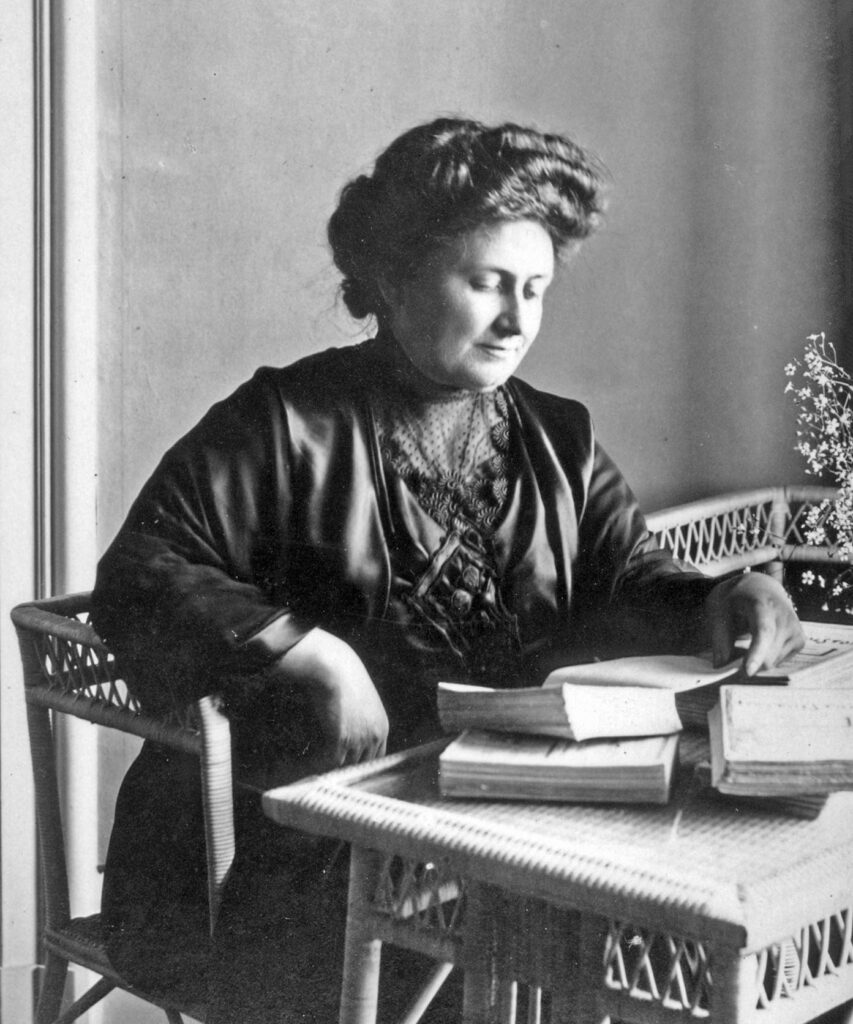
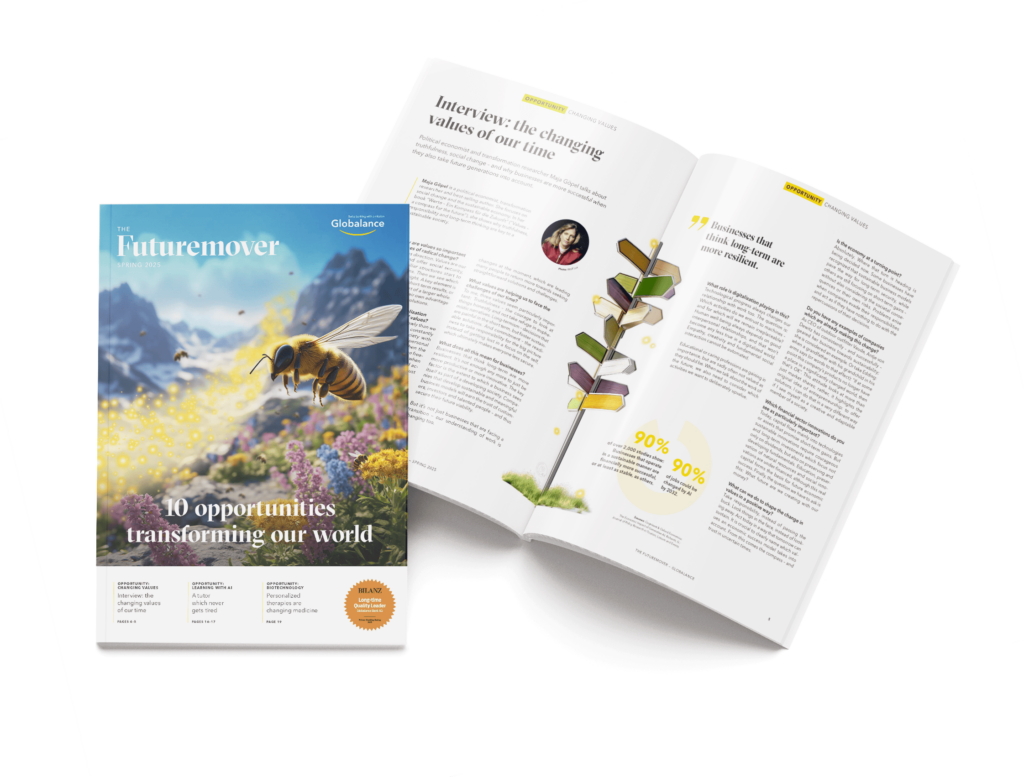
Discover the entire issue
Read more articles from our current issue: ‘10 opportunities
transforming our world’.
Be part of the solution and stay informed with the Futuremover.
Subscribe now and shape the future!
Magazin abonnieren EN
"*" indicates required fields




